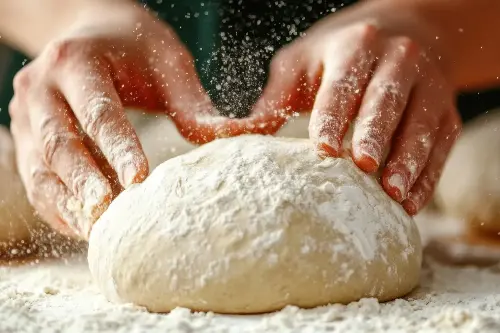Lifestyle-Health
Step Into Baking Success With This Must-Read Guide To Essential Ingredients And Equipment Every Baker Needs

Nothing beats the warm aroma of freshly baked bread or a tray of sweet treats rising in the oven. For many, baking isn’t just about the end product—it’s a source of joy, comfort, and creativity. Whether you’re keen on preparing your first loaf or aiming to decorate cupcakes like a pastry chef, mastering the basics of essential ingredients and equipment will set you up for baking success. This guide explores the must-haves every baker should know about, complete with some fascinating titbits to make your next visit to the kitchen even more enticing.
The Building Blocks: Essential Baking Ingredients
All great bakeries—whether in Paris, Tokyo, or your own home—start with staple ingredients. Flour is at the heart of countless recipes, but did you know not all flour is equal? While plain white flour (all-purpose flour) is the most common go-to, strong bread flour, with its higher protein content, is vital for a sturdy, chewy loaf. Cake flour, on the other hand, delivers those wonderfully light sponges, as its fine texture allows cakes to rise higher and fluffier.
Sugar is another hero of the bakery. White granulated sugar is standard, but brown sugars introduce a rich molasses flavour, ideal for cookies and gingerbread. For a truly unique taste, try muscovado sugar in brownies—it’s a well-kept secret among pastry chefs for that fudgy texture.
Baking powder and bicarbonate of soda might seem similar, but they work in distinct ways. Baking powder is perfect for recipes that lack acidic ingredients, while bicarbonate of soda (baking soda) reacts with acid (like yoghurt or lemon juice) to create lift. Remember, using too much of either can cause your bake to flop or taste bitter, so accuracy is key.
Eggs are magic-makers, providing structure, richness, and a beautiful golden colour. If you or your guests eat plant-based, aquafaba (the liquid from a can of chickpeas) can mimic egg whites in meringues—a tip that’s taking the baking world by storm.
Butter versus margarine is one debate that divides bakers. Butter imparts an unbeatable flavour, especially in pastries and shortbread. However, margarine and even certain oils work well for lighter, dairy-free options.
Finally, never overlook salt and pure vanilla extract. Salt sharpens flavours, balancing the sweetness, and vanilla brings a delightful aroma that transforms even the simplest biscuit.
Must-Have Baking Equipment For Success
Great tools make for flawless results, saving you time and ensuring consistency. The humble mixing bowl is a starting point, but did you know glass bowls are prized for not retaining odours, while stainless steel ones are near-indestructible?
Scales are the secret weapon of precision. While it’s easy to scoop flour with a cup, weighing ingredients ensures you avoid dense cakes or rubbery bread. Digital kitchen scales offer accuracy down to the gram or ounce—a fact professionals swear by.
Measuring spoons and jugs might seem basic, but they’re invaluable for liquid and small-dose ingredients. For even measurements, invest in a set with engraved markings; these won’t wear off after repeated washes.
Every baker needs an electric hand mixer or a sturdy stand mixer. Creaming butter and sugar by hand is noble but exhausting, especially for batch baking. A stand mixer’s dough hook is essential for kneading tricky bread doughs—saving you effort and untidy worktops.
Baking trays and tins come in all shapes and materials. Non-stick metal trays are the everyday hero, while glass or ceramic dishes hold heat evenly, perfect for pies and flans. For cakes, loose-bottomed or springform pans prevent sticky disasters when turning out your masterpiece.
A set of rolling pins, spatulas, and whisks will take care of almost any task. Wooden rolling pins are traditional and versatile, but non-stick silicone versions prevent dough from clinging. Silicone spatulas are flexible and heatproof—ideal for folding in whipped egg whites without losing that precious air.
Bakers swear by parchment paper for a reason: it saves washing up and prevents burnt bottoms. For an eco-friendly twist, reusable non-stick silicone mats do the same job countless times.
The Science Behind Baking: Why The Right Tools And Ingredients Matter
Baking is often described as a blend of science and art. Small changes in ingredients can transform the chemistry of a bake. For example, swapping white sugar with brown makes cookies spread less, while the right ratio of raising agent ensures cakes rise without collapsing.
Equipment matters too. The heat conductivity of your baking tin changes how quickly your sponge cooks—metal tins usually make cakes bake faster, as they get hotter. That’s why many recipes specify tin size and material; it’s all part of the science.
A little-known fact: preheating your oven is vital. Ovens can take longer than expected to reach the correct temperature, and placing your bake in too soon can stop it from rising or browning as intended. Investing in an oven thermometer can make a surprising difference when accuracy counts.
Secret Tips From Seasoned Bakers
Every baker—amateur or professional—develops their own rituals. Resting cookie dough in the fridge lets the butter solidify, helping cookies retain that coveted chewy centre. Sprinkling a touch of sea salt over brownies before baking elevates the flavour, giving a gourmet twist.
Keeping ingredients at room temperature, especially eggs and butter, ensures they mix smoothly, creating fluffier bakes. If you forget (as we all do), quick tricks like placing eggs in warm water can bring them up to temperature in minutes.
Don’t discard imperfect loaves or cakes. Stale bread makes the best bread pudding or croutons, and a slightly cracked cake is the perfect base for trifle.
Choosing Quality For The Best Results
Investing in top-quality base ingredients, from fresh farm eggs to premium chocolate and unbleached flour, might cost a little more, but the difference in taste and texture is remarkable. Likewise, good equipment need not be expensive. Many top bakers rely on basic, affordable tools well cared for over the years.
So, whether you’re planning your first Victoria sponge or seeking the secret behind an artisan sourdough, arming yourself with the core essentials—and understanding why they work—will help you bake with confidence. Explore, experiment, and have fun; baking, after all, is as much about the journey as the scrumptious destination.
-

 Lifestyle-Health5 months ago
Lifestyle-Health5 months agoInvesting ₹10,000 a month via SIP in this mutual fund would have swelled to ₹1.71 crore in 21 years. Check how
-

 Lifestyle-Health5 months ago
Lifestyle-Health5 months agoMultibagger small-cap stock under ₹50 jumps despite sell-off in Indian stock market
-

 News In Diaspora5 months ago
News In Diaspora5 months agoHotels and homes on Crete evacuated as wildfire burns out of control
-

 Breaking News2 months ago
Breaking News2 months agoIsrael Names 77 Countries That Boycotted Netanyahu’s UN Speech In Protest Over Gaza War
-

 Lifestyle-Health6 months ago
Lifestyle-Health6 months agoOgie Alcasid’s daughter Leila ties the knot in Australia
-

 Lifestyle-Health5 months ago
Lifestyle-Health5 months agoDriving Abroad: These 34 countries accept SA licenses
-

 Politics6 months ago
Politics6 months agoFinally Federal Government of Nigeria Assures Citizens, Says The President Isn’t Controlled by Any Cabal
-

 Lifestyle-Health3 months ago
Lifestyle-Health3 months ago11 signs of growth that you might have missed
-

 Breaking News3 months ago
Breaking News3 months agoVeteran actress, Peju Ogunmola, loses only child, Ayomikun
-

 Lifestyle-Health6 months ago
Lifestyle-Health6 months ago10 Unwritten Rules for Visiting Bali that Travelers Should Know
-

 Lifestyle-Health4 months ago
Lifestyle-Health4 months agoWhen to take time off and focus on yourself and your family
-

 Lifestyle-Health5 months ago
Lifestyle-Health5 months agoAyala, UPC Renewables JV to sell stake in 1 GW projects in $600 mn deal

